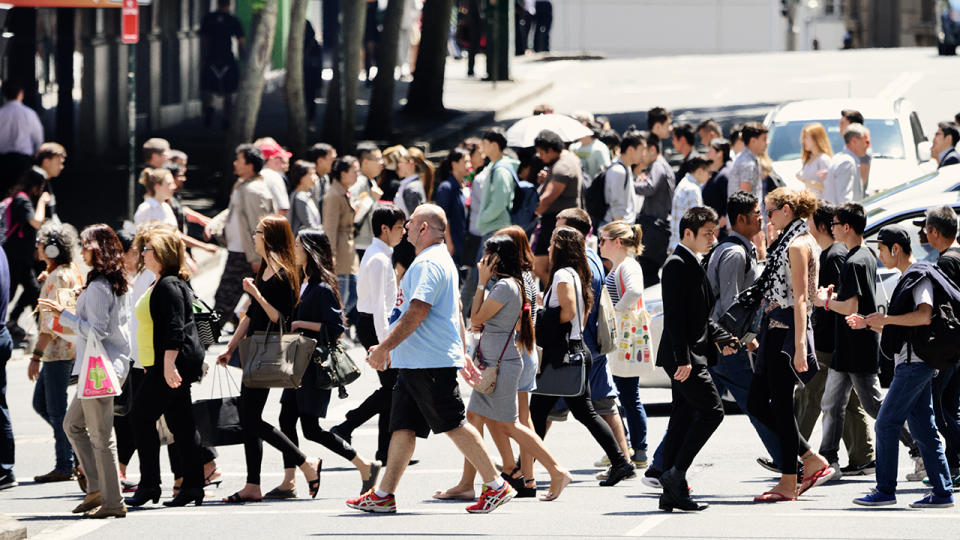Here’s how your finances will change in 2019

A new year spells change in various laws, regulations, policies, tax rules and prices.
The banking and finance sector has also undergone a tumultuous year thanks to the damning revelations aired by the Royal Commission.
Here’s a quick run-down of the changes your wallet and bank accounts might see in the new year.
1. Insurance premiums will cost more
In a move that has been swiftly slammed by Labor, Health Minister Greg Hunt has given private health insurers the green light to hike insurance premiums by an average of 3.25 per cent from April.
The increase is going to cost Aussie families an average of $2.35 a week, or more than $122 a year.
2. So will the daily commute
Metropolitan Victorians will see their train, tram and bus fares rise by 2.2 per cent, with adult full-fare passes increasing from $43 to $44 a week alongside a $0.50 hike in the price of a concession pass from $841.75 to $861.25. Regional Victorians will escape unscathed.
Brisbane’s TransLink is also rising prices by 1.8 per cent, meaning adult single-zone tickets will be $4.70 from $4.20 from 7 January onwards. Concession rates won’t be touched.
Meanwhile, TransLink Go card users – including concession users – will see fares increase by around 5 or 6 cents.
NSW commuters have already been copping a 2.2 per cent increase in Opal fares since July.
3. Tampons and pads will be cheaper
Women will no longer need to pay GST for feminine hygiene products like tampons, pads and menstrual cups after Treasurer Josh Frydenberg announced on 3 October that the government would ditch the ‘tampon tax’.
4. Power prices will come down
Victorians with AGL as their power provider will pay 1.6 per cent less for their electric bill from the 1st of January, spelling an average annual saving of $23 per household and $60 for small businesses.
Meanwhile, gas prices will drop 0.9 for residents and 1.2 per cent for small businesses.
It’s also good news for concession card holders in NSW, ACT, Queensland and South Australia, where around 230,000 Aussies on standing offers or non-discounted plans will see an automatic 10 per cent discount on their electricity from 1 January, meaning an extra $169 back in the pocket.
Origin Energy and EnergyAustralia are holding steady on their prices.
5. Credit lenders will be kinder to customers in debt
Australia’s major credit card issuers are trialling new ways to assist customers who aren’t repaying balance transfers. Some of these measures include tailored communications or structured payment arrangements, restricting the amount to which credit cards can be maxed out to 10 per cent, allowing interest-free periods on new purchases, and better disclosing how old credit cards can be cancelled.
From 1 January, banks will also be unable to provide customers with credit cards if they can’t repay the limit within three years in what’s called a three-year responsible lending assessment.
Banks also can’t offer unsolicited credit limit increases or to backdate interest charges on balance transfers, and have to offer customers the ability to request credit limit reductions or online card cancellations.
6. NAB customers to also pay $2 fees at RediATMs
From the first day of 2019, NAB customers will have to start paying a $2 fee to take money out of more than 3000 RediATMs across the country.
NAB was the only big bank to have a partnership with Cuscal, which owns RediATM. The partnership officially ends on 1 January, meaning customers with all four major banks will be slugged with a $2 fee when using a RediATM.
7. The rules in banking and finance could change
With the Final Report of the Royal Commission to be released in February (the interim report was released in September), the Australian banking and finance sector appears set for major reforms.
Some of the policy reforms could mean ‘vertical disintegration’, or breaking up banks that manufacture financial products from their financial advice arms that provide advice. Three of the four big banks have already sold their advice arms, with Westpac the only bank holding firm.
Lenders could also be forced to stop paying commission to mortgage brokers for signing new loans.
And since regulators APRA and ASIC themselves underwent scrutiny, corporate watchdogs could also be facing new rules to toughen up on the big banks.
Make your money work with Yahoo Finance’s daily newsletter. Sign up here and stay on top of the latest money, news and tech news.
Read next: Labor slams 3.25 per cent increases to private health insurance premiums
Read next: ‘We tried, but we got it wrong’: NAB, ANZ, Westpac forced to slash exec pay further

 Yahoo Finance
Yahoo Finance 
